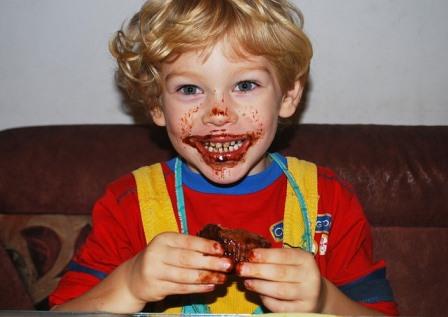- Calls to this hotline are currently being directed to Within Health, Fay or Eating Disorder Solutions
- Representatives are standing by 24/7 to help answer your questions
- All calls are confidential and HIPAA compliant
- There is no obligation or cost to call
- Eating Disorder Hope does not receive any commissions or fees dependent upon which provider you select
- Additional treatment providers are located on our directory or samhsa.gov
Supporting Your Child’s Meal Plan While Preparing Meals for the Entire Family

Contributor: Courtney Howard, B.A., Executive Assistant at Eating Disorder Hope and Addiction Hope
Depending on your existing food habits, it is possible to fully support and facilitate your child’s instructed meal plan without it drastically affecting your own meals. However, you will likely need to alter your meal times in some way and practice intuitive eating to best support your child in recovery.
How Important are Meal Plans?
Adhering to a meal plan can be vital to recovery, particularly during the early stages. A dietitian will likely set an individualized meal and exercise plan that fits your child’s specific nutritional and behavioral needs. If you prepare most of your child’s meals, it is important to study this meal plan and be able to follow it as closely as possible.
If a child veers off of his or her meal plan, this can become a slippery slope to relapse. For example, he or she might skip snack one day, then dinner the next, leading to an after-hours binge.
This is not to say there cannot be flexibility, as this is certainly an end goal for those in recovery. However, professionals recommend following a meal plan until the individual feels comfortable practicing intuitive eating and listening to his or her natural hunger and fullness cues.
Other Family Members
 Even if you are more than willing to revise your meal schedules or the types of food you keep in the house, other family members might be less willing to do so. They might resent these imposed changes, even if they see why it is necessary or helpful to their loved one.
Even if you are more than willing to revise your meal schedules or the types of food you keep in the house, other family members might be less willing to do so. They might resent these imposed changes, even if they see why it is necessary or helpful to their loved one.
Some of your family members likely eat low-fat, low-calorie, or diet food at times. Even keeping this food in the house, even a seemingly harmless Lean Cuisine, can be triggering to someone in the early days of eating disorder recovery.
Transparency and open communication are key to families going through this journey. Speak to your loved ones and express why it might be important to keep this food out of the house on a short-term basis. When your child is further along in his or her recovery, you can reintroduce these foods to the house to accommodate your other family member and let your child know it is okay to talk to you if it is triggering in any way.
If you or other family members have legitimate dietary restrictions, such as a true gluten intolerance or diabetes, have a discussion. In these cases, you clearly cannot adjust meal plans to fit your child in recovery as freely and that is okay. You can still be mindful of this and reduce triggers.
Meal Times and Intuitive Eating
 It is important to understand that intuitive eating is often unrealistic for individuals fresh into recovery. This requires time and the individual developing trust with his or her own body. If you have had a disordered relationship with food in the past, as well, this can be a good time to reconcile this and model intuitive eating for your loved one.
It is important to understand that intuitive eating is often unrealistic for individuals fresh into recovery. This requires time and the individual developing trust with his or her own body. If you have had a disordered relationship with food in the past, as well, this can be a good time to reconcile this and model intuitive eating for your loved one.
Having set meal times is not intuitive in nature. This might be confusing if you are trying to listen to your natural hunger and fullness cues but have to have dinner ready for your family at 6:00 p.m. What if you aren’t hungry?
In these cases, it is up to your best judgment. Not eating with your family might be triggering for your child, as he or she might then feel like eating dinner is optional or even wrong. Eating meals as a family can provide unique support for your child, so it is encouraged that you find a healthy balance between intuitive eating and following your child’s meal plan in solidarity.
Preparing Meals
 Your child might want to participate in food preparation. Before welcoming the help, try to deduce whether this is coming from a place of needing control over meal preparation or a place of feeling comfortable with food. There is a distinct difference that you might want to discuss with your child’s therapist or dietitian.
Your child might want to participate in food preparation. Before welcoming the help, try to deduce whether this is coming from a place of needing control over meal preparation or a place of feeling comfortable with food. There is a distinct difference that you might want to discuss with your child’s therapist or dietitian.
When preparing meals, you can make the experience fun and interactive for your child. Though your child has probably helped with meal preparation in treatment or with a dietitian to gain this comfort with food, you can further this and help your child have fun food memories instead of those in his or her disorder.
Supporting your child’s meal plan can take different forms, and you can use this opportunity to turn meal times into a positive occurrence for the entire family.
Community Discussion – Share your thoughts here!
Have you found it difficult to accommodate the rest of your family while preparing meals that support your child’s meal plan? How were you best able to create a balance within your family?
 About the Author: Courtney Howard is the Executive Assistant for Eating Disorder Hope and Addiction Hope. She graduated summa cum laude with a B.A. from San Diego State University, holds a paralegal certificate in Family Law, and is a Certified Domestic Violence Advocate. After obtaining her certification as a life coach, Courtney launched Lionheart Eating Disorder Recovery Coaching in 2015 and continues to be a passionate advocate for awareness and recovery.
About the Author: Courtney Howard is the Executive Assistant for Eating Disorder Hope and Addiction Hope. She graduated summa cum laude with a B.A. from San Diego State University, holds a paralegal certificate in Family Law, and is a Certified Domestic Violence Advocate. After obtaining her certification as a life coach, Courtney launched Lionheart Eating Disorder Recovery Coaching in 2015 and continues to be a passionate advocate for awareness and recovery.
The opinions and views of our guest contributors are shared to provide a broad perspective of eating disorders. These are not necessarily the views of Eating Disorder Hope, but an effort to offer discussion of various issues by different concerned individuals.
We at Eating Disorder Hope understand that eating disorders result from a combination of environmental and genetic factors. If you or a loved one are suffering from an eating disorder, please know that there is hope for you, and seek immediate professional help.
Last Updated & Reviewed By: Jacquelyn Ekern, MS, LPC on June 29, 2016
Published on EatingDisorderHope.com

The EatingDisorderHope.com editorial team comprises experienced writers, editors, and medical reviewers specializing in eating disorders, treatment, and mental and behavioral health.

